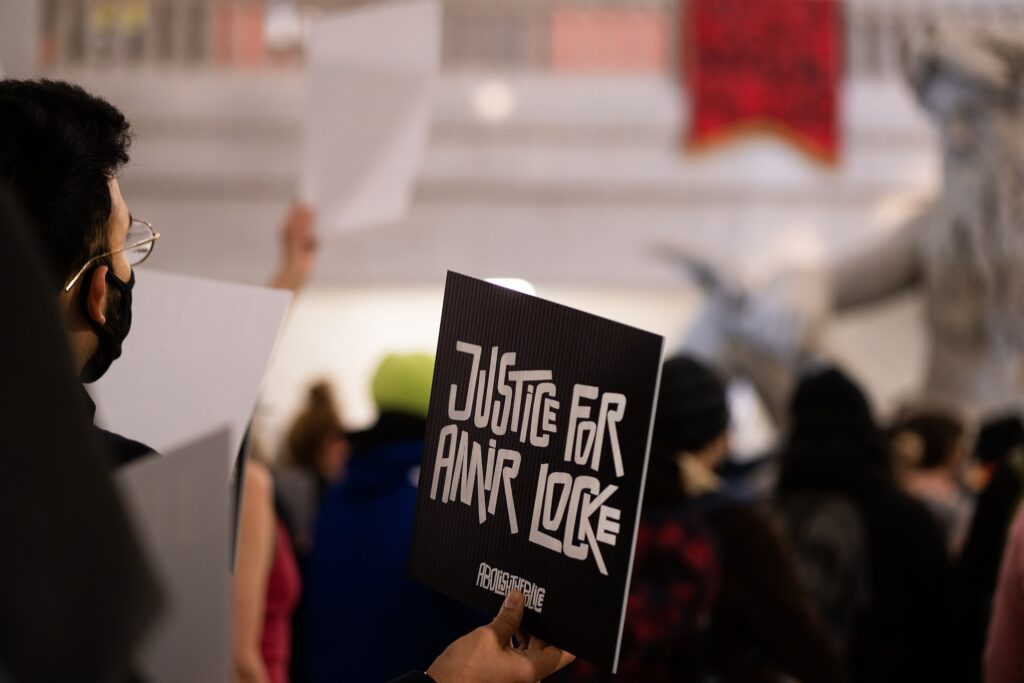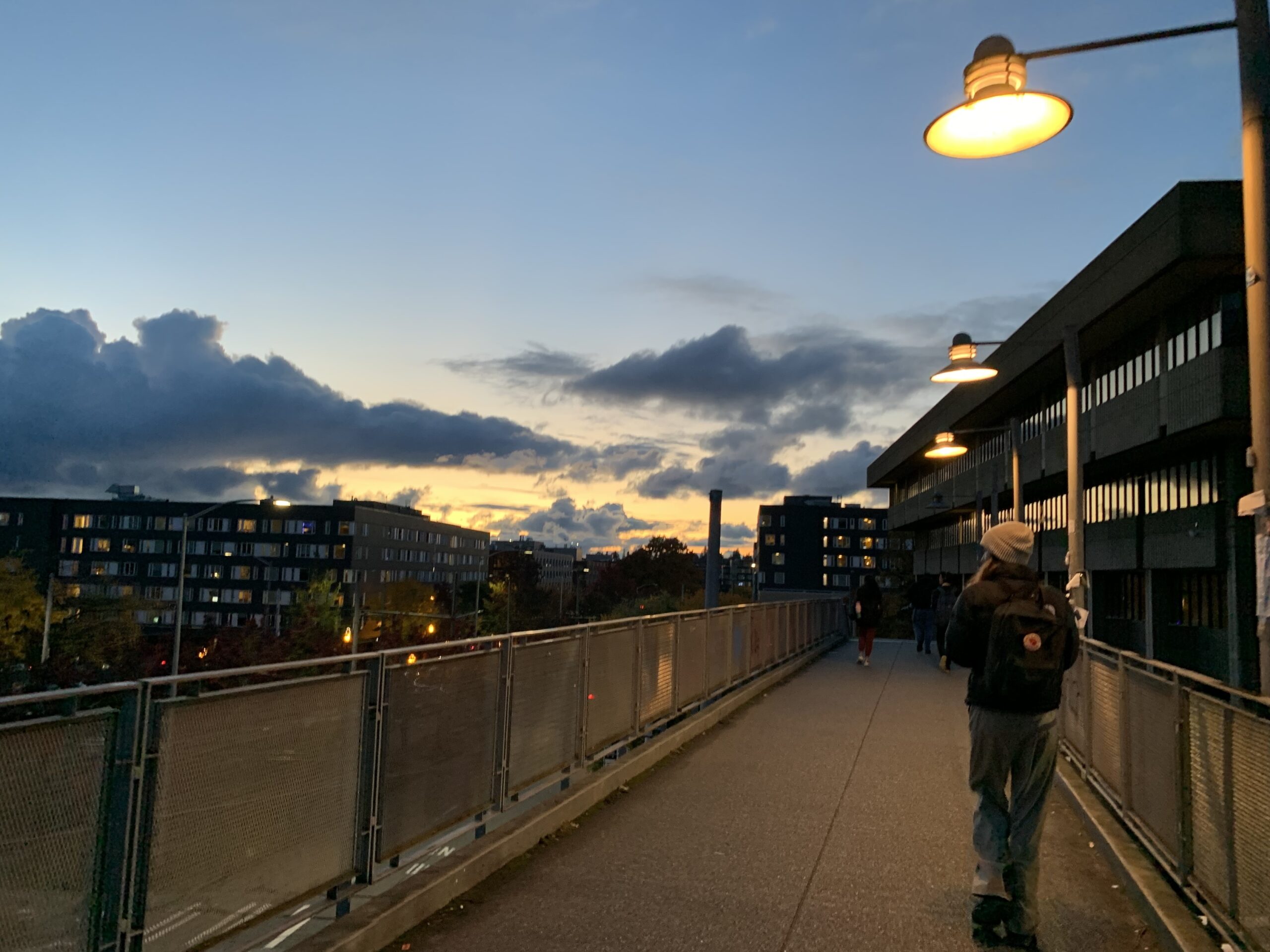(LOS ANGELES) – The family of Amir Locke, a 22-year-old Black man killed by Minneapolis police during a no-knock raid last year, recently filed a wrongful death lawsuit against the city of Minneapolis and the officer who fired the fatal gunshots.
In the early morning hours of February 2, 2022, the Minneapolis S.W.A.T. team were executing a no-knock warrant at a residence in downtown Minneapolis. Moments after entering the residence, Locke was killed by Minneapolis policeman Mark Hanneman. At the time, Locke was a guest in the residence and was not named in that warrant, nor was he suspected of any crime, according to the lawsuit.
The family said in the lawsuit that officer Hanneman violated Locke’s clearly established rights guaranteed by the Fourth and Fourteenth Amendments to the United States Constitution. The lawsuit further alleges that there are systemic issues relating to improper policies, procedures, and training implemented by the City of Minneapolis. Jeff Storms, lead attorney for the Locke family, said that a large part of the lawsuit is the Monell claim against the City of Minneapolis, referring to the systemic issues of policing in Minneapolis.
“The city of Minneapolis has a notorious and well-established history of failing to really train and control its police department. The police department has a well-known history of uses of excessive force, particularly directed towards communities of color,” Storms added.
The City of Minneapolis told The Click in an email statement that they are currently reviewing the complaint.
The lawsuit alleges that “despite public overtures by City of Minneapolis (“Minneapolis” or “City”) officials that no-knock warrants had been banned in Minneapolis, the Minneapolis Special Weapons and Tactical Team (“SWAT”) used a no-knock warrant to storm into the apartment where Amir slept.” The complaint highlights the racial disparity at play in conducting no-knock warrants and alleges a “custom, pattern, and practice of racial discrimination in policing” present in the Minneapolis Police Department.
“In the four months leading up to this raid, Minneapolis executed no-knock warrants only in homes of color, predominantly in Black homes, and not once in the homes of non-Hispanic Whites,” the lawsuit said.
The 36-page lawsuit was filed in the United States District Court for the District of Minnesota. A team of civil rights attorneys led by Ben Crump filed the suit on behalf of Locke’s parents.
“The City of Minneapolis, as we’ve seen clearly and painfully in recent years, has a history of using excessive and unjustified force, particularly against Black men,” said Crump in a statement announcing the lawsuit. “The Black community in Minneapolis is 19% of the population, but 63% of cases where Minneapolis Police use of force. Amir Locke should not have died one year ago, and we will use this lawsuit to fight for justice and for much-needed change in the way Minneapolis trains its officers.”
“What’s particularly frustrating about the city of Minneapolis is that it makes the same mistakes over again,” Storms said, “but it also refuses to learn from widely publicized mistakes of other departments.”
The lawsuit comes three years after the killing of George Floyd. Floyd’s death, in particular, prompted the US Justice Department in 2021 to launch a federal civil investigation into policing practices in Minneapolis. Attorney General Merrick Garland said the investigation was to determine whether its police department has “a pattern or practice of unconstitutional or unlawful policing.”
The city claims that probe is still ongoing.
According to the complaint, on the night of the raid, Locke kept a handgun within reach of where he was sleeping. But despite demonstrating “proper and responsible handling by keeping the handgun pointed away from the officers and keeping his finger off the trigger.” It alleges that Hanneman failed to give Locke “an opportunity to realize who and what was surrounding him, and then provide Amir with an opportunity to disarm himself.” Instead, “Hanneman fired three shots while Amir was still covered in a blanket on the couch where Amir had been resting peacefully only ten seconds before the SWAT entry.”
Prosecutors previously declined to bring criminal charges in this case.
Dr. T. Anansi Wilson, the Director of the Center for the Study of Black Life and the Law at the Mitchell Hamline School of Law in Minnesota, wasn’t surprised that the officer involved wasn’t charged. Wilson highlighted the prominence of qualified immunity when families like Amir Locke’s, attempt to get legal relief after having loved ones killed by the police.
“You have to essentially overcome qualified immunity, which is essentially this situation where this supreme court has made a legal doctrine that says unless someone’s violated a previously clearly articulated constitutional right, and [the police] cannot be held liable,” Wilson said. Alternatively, Wilson urged for changes to be made to the current laws to prevent unnecessary killings of civilians at the hands of the police. “You can do a couple of things: either get rid of qualified immunity or lower the burden of proof required for criminal civil rights violations,” Wilson added.
According to the complaint, the family is seeking compensatory, special, and punitive damages and costs in an amount to be determined by a jury. The complaint also asks for the appointment of an authority to ensure that the City of Minneapolis properly trains and supervises its police officers.
“We have pleaded in our complaints for the ability to pursue injunctive relief to impact policy changes,” Storms said.


